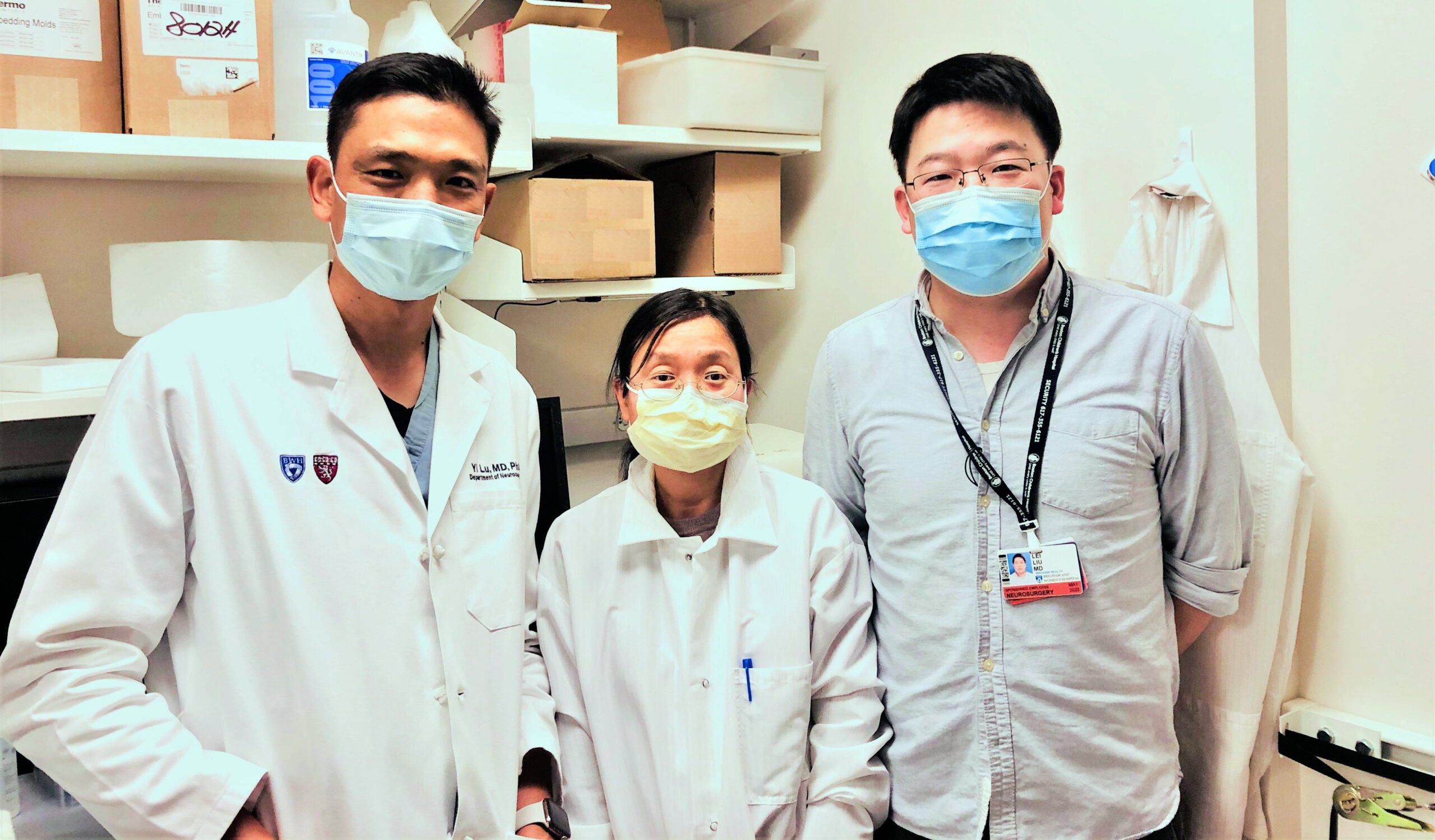
Director, Neurological Trauma, Brigham and Women’s Hospital
Assistant Professor of Neurosurgery, Harvard Medical School
Developing treatments for progressive visual impairment following traumatic brain injury
Mild traumatic brain injury (mTBI) accounts for up to 75% of all brain injuries. Visual impairment is a common and serious problem with visual dysfunction occurring in 30-85% of patients following mTBI. Damage to the optic nerve (ON) causes injury and swelling in a proportion of retinal ganglion cell (RGC) axons, accompanied by subsequent RGC degeneration. While multiple therapies are used to prevent pathological changes to the ON and preserve RGC survival after trauma, there is still no efficient therapy.
To solve for this, Dr. Yi Lu’s lab developed an mTBI animal model that uses a phenotype similar to that of humans, resulting in optic nerve atrophy, demyelination in optic nerves, and RGC loss in animal subjects. The team characterized RGC survival after injury and identified genes associated with resilience subtype of RGCs. Through this process they also identified the presence of caveolins. Protein markers that are related to IGF1R survival signaling pathways, caveolins are expressed selectively in multiple resilient subtypes and affect RGC survival and axon morphology. Importantly, the team discovered that caveolin 1 and its scaffolding domain peptide protected RGC from early- to late-stage injury. Furthermore, these treatments protected injury-induced optic nerve atrophy and restored functional axonal transportation from the retina to the brain.
Recognizing that caveolin 1 and its scaffolding domain peptide can help protect RGCs and optic nerves after mTBI, Yi and his team will use Stepping Strong Center funding to develop treatments for mTBI patients who have progressive vision impairment.
Yi Lu, MD, PhD, is the director of neurological trauma at Brigham and Women’s Hospital and assistant professor of neurology at Harvard Medical School. Lu, a complex spine surgeon, is also a dedicated spinal cord and traumatic brain injury researcher who collaborates with experts at Boston Children’s Hospital, the Miami Project to Cure Paralysis, and Spaulding Rehabilitation Hospital on finding solutions for patients with spinal cord injury and traumatic brain injury. Lu serves as the co-chair for the North American Spine Society’s section on spinal cord injury. Lu’s research team is currently working on discovering mechanisms for axon sprouting and functional restoration and bringing breakthrough discoveries from basic science laboratories to clinical settings with a goal of advancing care for patients suffering from the devastating outcomes of traumatic brain injury and spinal cord injury.
